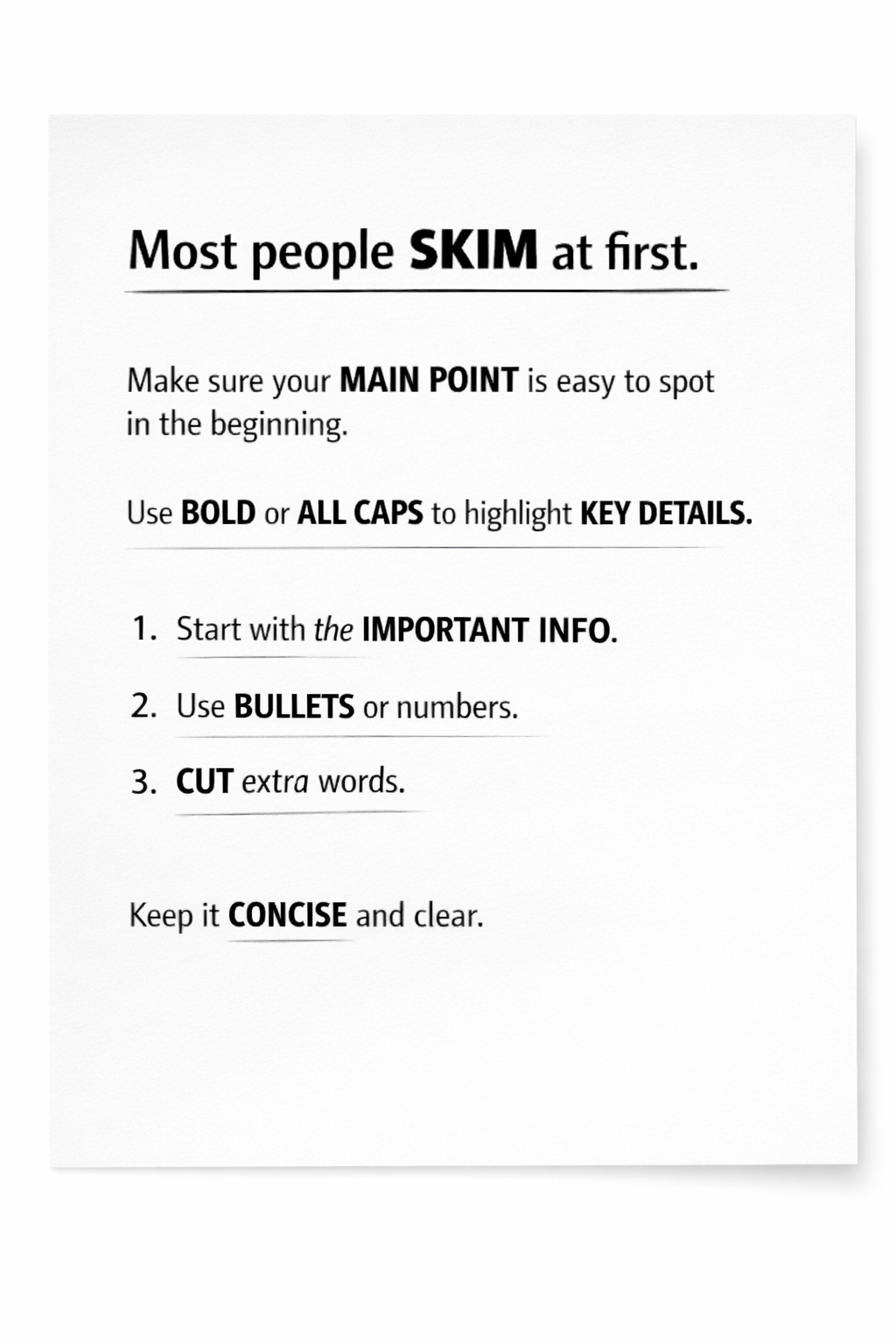Nib #73 The Easiest Speechwriting Mistake to Avoid
There is nothing more frustrating than discovering — 20 minutes into cooking a nice dinner — that you’re missing a crucial ingredient. And there is nothing more frustrating about this frustration than knowing how easily it could have been avoided. A 30-second cabinet check before you went grocery shopping is all it would have taken.
Young speechwriters make this mistake all the time. They forget to inventory their ingredients before they start cooking. In their case, it’s not unsalted butter or balsamic vinegar they overlook, but important points and messages that key coworkers want included in a speech.
Let’s say your boss, a congressman, wants to give a four-minute speech about the big tax bill that the House of Representatives just passed. The congressman voted for it, and he especially likes the bill’s extension of the 2017 tax cuts. So you draft a speech about that. You polish it, tighten up a few things, and send the draft up the approval chain.
But then the Communications Director adds a paragraph attacking the other party for opposing the bill. The chief of staff says she wants something in there specifically touting some committee work the congressman did on the bill. The District Director says the speech must explain how the bill would help local small businesses. The MLA says it also has to highlight the bill’s increased funding for an Army base in the state. The political guru says he’d like to see more pro-Trump rhetoric.
Pretty soon, you reach a deflating conclusion. It’s going to be easier to start over and write a whole new speech than to incorporate all these various notes into the current draft. Speechwriters complain about this scenario all the time. “Frankensteining,” it’s called.
But it’s usually their own fault.
The speechwriter could have gathered all these inputs before starting work on the speech. He could have asked the comms people what they want, what the policy folks need, what the political strategists and state staff would like to see.
By collecting these “must haves” before the first draft is even outlined, all those key messages can be integrated into a coherent text from the beginning rather than slapped on or crammed in after the fact.
There is no downside to this ingredient-gathering practice. First, it signals to your coworkers that you care about their opinions. Second, the guidance and content ideas you receive make the writing of each speech easier. Third, it streamlines the approval process. And fourth, it will enhance your reputation in the office!
Of all the common mistakes and challenges that vex young speechwriters, “Frankensteining” is the easiest to avoid. The solution to back-end chaos is front-end communication.
Gather all your ingredients before you start cooking.
Until next week… keep writing!











